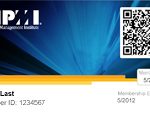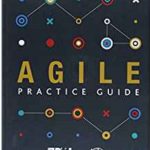Course Name: Agile Project Management
Term and Session:
Reference Number:
Faculty Contact Information
Instructor Name: Victor Arenas
Email: Please contact me through the D2L email tool. Use my Broward College email only if you are unable to access the course email. My Broward College email is varenas@broward.edu
BC Online Phone: 954-201-6165
Online Office Hours: I am available to e-meet , make an appointment at https://calendly.com/professorarenas
Course Information
In this class, you will engage in structured out-of-class and online activities. The online activities may include, but are not limited to, readings, discussions, essays, case studies, research, and/or online quizzes and tests. See the course schedule for a detailed description of activities. Students are responsible for regularly reviewing the course schedule and completing all required assignments.
Course Description
This course will cover the knowledge of agile principles and improve skills with agile techniques. Students will explore many approaches to agile such as Scrum, Kanban, Lean, extreme programming (XP) and test-driven development (TDD.) A focus will be given to Project Management Institutes (PMI) content domains for certification for agile practitioners, known as the PMI Agile Certified Practitioner (PMI-ACP).
View the course description for more details.
Prerequisites and Corequesites
To maximize your chances for success in this course, make sure that you meet the following course pre- or co-requisites:- Prerequisites: CIS1513C Project Management
- Corequisites: NONE
General Course Outcomes
By the end of this course, students will be able to:
- Explore, embrace, and apply agile principles and mindset within the context of the project team and organization.
- Deliver valuable results by producing high-value increments for review, early and often, based on stakeholder priorities. Have the stakeholders provide feedback on these increments, and use this feedback to prioritize and improve future increments.
- Engage current and future interested parties by building a trusting environment that aligns their needs and expectations and balances their requests with an understanding of the cost/effort involved. Promote participation and collaboration throughout the project life cycle and provide the tools for effective and informed decision-making.
- Create an environment of trust, learning, collaboration, and conflict resolution that promotes team self-organization, enhances relationships among team members, and cultivates a culture of high performance.
- Produce and maintain an evolving plan, from initiation to closure, based on goals, values, risks, constraints, stakeholder feedback, and review findings.
- Continuously identify problems, impediments, and risks; prioritize and resolve in a timely manner; monitor and communicate the problem resolution status; and implement process improvements to prevent them from occurring again.
- Continuously improve the quality, effectiveness, and value of the product, the process, and the team.
Textbook and Materials
| REQUIRED | HOW TO GET IT |

|
You may obtain the textbook from different sources for your convenience.
|
  |
Author: Medinilla, Ángel
Title: Agile Kaizen : Managing Continuous Improvement Far Beyond Retrospectives Published: Berlin, Heidelberg : Springer Berlin Heidelberg : Imprint: Springer, 2014. Publisher: Springer Berlin Heidelberg : Imprint: Springer, Description: XIX, 196 p. 22 illus. : online resource. E-Read ( LINK HERE )Reading Resources (The book is available at the University/College Library). To access these resources you need your borrower ID and PIN. See below:
Your borrower ID number is your student ID# or PID# found on your BC Photo ID card. For example, the login for Sammy Seahawk, ID# S12345678 would be: S12345678 Your default PIN is the four digits of your birth date: MMDD. For example, if you were born on July 04, your PIN is 0704. |
  |
Telegram Telegram is a cloud-based mobile and desktop messaging app with a focus on security and speed. This application is required for the group assignments. |
|
Optional |
Note that the PMI membership is optional. |
  |
PMI Student Membership (Optional but Recommended)The student’s membership gives you access to online communities, templates, member-only webinars, virtual events stored at www.projectmanagement.com, it will also include the text book and other materials that will enhance your agile learning experience.
PMI STUDENT MEMBERSHIP FEES:
Once you have your PMI information, please see the Textbook Download Instructions to assist you with retrieving your materials. |
Online Required Resources
 |
Students will be required to watch LinkedIn Learning content to complete this course. To sign up for a LinkedIn Learning account, instructions can be found in the Registering for LinkedIn Learning document in the Start Here folder. |
Required Technology
In order for you to have the most effective learning environment, it is important that you are using the right equipment. For this course, you will need:
- A reliable Internet connection.
- Regular access to a laptop or desktop computer with an updated operating system and web browser. Visit the technical requirements page for a complete list of system and software requirements. And the D2L System Check to ensure your browser is properly configured for online learning.
- Microsoft Office 365 is available for download for all Broward College students. Follow the directions to download and access Microsoft 365.
- A webcam and microphone for proctored exams
Student Expectations
Attendance Verification
You are expected to participate in an academic activity to be considered “present” in the course. You must complete an academic activity during the first week of the course, so that it is done before the attendance verification date. The academic activity is usually the syllabus or syllabus quiz or a discussion post. Just logging into the course or sending an email to your instructor will not satisfy the attendance requirement. Like your on-campus courses, if you are reported for non-attendance in an online course and then withdrawn, you are still responsible for paying for the course. If for any reason you cannot complete the attendance verification requirement before the deadline, make certain to drop the course by the official drop/add deadline or you will still have to pay for the course.
Participation
To succeed in this course, log in and participate multiple times throughout the week (check email, announcements, class discussions, feedback, etc.) so you do not miss critical course information and updates. Additionally, communication with your professor is very important and plays a vital role in your success.
Withdrawal policy
It is your responsibility to withdraw from this course. If you stop participating and do not withdraw by the deadline, you may receive an F.
Computer Knowledge and Skills
By taking an online course, your computer literacy skills will grow. Some of the skills that you will need at the beginning of the course include:
- working knowledge of how to use multiple web browsers (Chrome, Firefox, Safari, etc.) to navigate the Internet and locate information.
- sending and receiving email using your D2L email (within the online course) and your BC email address. You should only use your instructor’s BC email if you cannot access D2L.
- file management skills including downloading and saving files on your computer, uploading files to D2L, and sending email messages with attachments.
Class Activities
Discussions
Remember, discussions are public and everyone in your course can read what you post. Review the D2L discussion tutorial for general support with the discussion tool.
Discussion Expectations
- There are 2 discussions worth 40 points each.
- Original posts should be completed by the Wednesday before the close of the discussion board.
- Original posts should be a minimum of 250 words.
- Responses to 2 classmate’s posts should be a minimum of 150 words.
- Refer to the discussion rubric for specific grading criteria.
- Grades will be posted within 5 days of the discussion due date.
Assignments
Assignments must be submitted by the due dates as specified in your syllabus. The submission of an assignment is your sole responsibility. You should keep an electronic copy of all assignments. Review the D2L assignment tutorial for general support with the assignment tool.
Instructions for Assignments and Group Projects
Assignments are due on the due date as listed in the course activities schedule. Assignment scores and feedback will be given x business days after the due date. Groups will be assigned in class.
Instructions for the Sprint Planning and Sprint Review Meetings
During the sprint planning meeting, the team members describe the highest priority features to the team. The team asks enough questions that they can turn a high-level user story of the product backlog into the more detailed tasks of the sprint backlog. There are a total of 4 sprint meetings, Sprint3, Sprint4, Sprint5 and sprint6. Students are expected to discuss and agree on how these meetings will take place (phone, chatroom (Telegram, slack, Skype etc).
Assignment Expectations:
- See course schedule for assignment due dates.
- Assignments submitted to the corresponding drop-box will be screened for academic honesty using Turnitin.
- Refer to the assignment rubric and other assignment resources for grading criteria.
- Grades will be posted within 5 days of the assignment due date.
Quizzes & Tests
Quizzes and tests may be taken only during the availability dates as specified in the course schedule. Give yourself plenty of time to complete assessments and pay close attention to the time limits. Make sure you have a reliable Internet connection prior to taking quizzes or tests. Review the D2L quizzes & tests tutorial for general support with quizzes and tests.
Honorlock Proctored Tests
Honorlock is an online proctoring service that allows you to take exams from the comfort of your home. Honorlock is available 24/7 and all you need is a computer, webcam, and a stable internet connection. You DO NOT need to create an account, download software, or schedule a proctoring appointment.
How It Works
All you need to do is log into D2L and click on the desired quiz. You will be prompted to add the Honorlock Chrome Extension, which is required to take your exam. You are required to use Google Chrome as your browser. You will then take a picture, show your ID, and scan your room. Honorlock will be recording you VIA webcam and will also be recording your screen. It also has an integrity algorithm that can detect search-engine use, so do not attempt to cheat or look up answers, even if it’s a secondary device.
How to Get Started
1. Review the Honorlock technical requirements to make sure your computer, webcam, and microphone meet the minimum requirements.
2. You will need to use Google Chrome and download the Honorlock Chrome Extension. You can download the extension at www.honorlock.com/extension/install.
3. When you are ready to take your exam log into D2L, go to your Course, and click on your exam. You will then be prompted to start the authentication process before you begin your exam.
4. If you see a page asking for an access code, it means that you did not install the Honorlock Chrome Extension or you are not in Google Chrome.
24/7/365 Support is Available. You can test your system or contact support before your exam by visiting honorlock.com/support
Remember, all Honorlock sessions are recorded and grades are considered tentative until your instructor has finished reviewing the recorded sessions.
If you encounter issues with Honorlock during your exam, you may contact them at (855) 828-4004, use the live-chat and/or email at support@honorlock.com.
Proctored Exam Expectations:
- The Midterm and the Final Exams are proctored using Honorlock.
- Exams contain multiple choice, true/false, matching, and fill in the blank questions.
- You have 1 attempt for each exam.
- You have 60 minutes to take each exam.
- The score will be available after submission, but it is not finalized until it is reviewed by the instructor.
Late Work Policy
For this course, unless otherwise noted by the instructor, submitting work late will be permitted only under qualifying circumstances and only with prior notification and supporting documentation (original funeral notice, original doctor’s note, etc.). Computer and Internet connectivity problems are not valid reasons for late work. It is the student’s responsibility to be technologically prepared to take an online course.
Course Schedule
Read and refer to this section regularly. The submission of all work is the sole responsibility of the student. Students should plan their workloads accordingly and not wait until the last minute to meet deadlines. If you are unsure of a due date, contact your instructor for clarification.
| Sprint 1: Orientation Module and Domain 1 |
Activities |
|
Read
|
Discussion
Assessment
|
| Sprint 2: Topic – Value Driven Delivery |
Activities |
|
Read
Watch
|
Discussion
Assignment
|
| Sprint 3: Topic – Stakeholder Engagement |
Activities |
|
Read
|
Assignment
|
| Sprint 4: Topic – Team Performance |
Activities |
|
Read
|
Assignment
Assessment
|
| Sprint 5: Topic – Adaptive Planning |
Activities |
|
Read
|
Discussion
|
| Sprint 6: Topic – Problem Detection and Resolution |
Activities |
|
Read
Watch
|
Assignments
|
| Sprint 7: Topic – Continuous Improvement (Product, Process, People) |
Activities |
|
Read
|
Assignment
|
| Sprint 8: Topic – Final Exam/ Certification Preparation |
Activities |
|
This sprint we will turn our attention to the Course Final Exam. This final exam fulfills the class requirements and also prepares you for the Official ACP certification. Becoming an Agile Practitioner does not only give you the chance to participate in development teams but also provides you with a new perspective that is rapidly taking over the enterprise strategies. |
Assessment
Evaluation
|
Grades
| Assessment | Graded Points |
| Syllabus Quiz | 10 |
| Student Introduction | 10 |
| Individual Discussions (2 @ 40 points each) | 80 |
| LinkedIn Learning Certificates (3 @ 33, 33, and 34 points) | 100 |
| Individual Assignments (2 – One at 100 and One at 150 points) | 250 |
| Group Assignments (2 – One at 150 and One at 200 points) | 350 |
| Midterm (1 @ 100 points) | 100 |
| Final (1 @ 100 points) | 100 |
| Total | 1000 |
| Grading Scale | |
| Grades | Percentage |
| Grade = A | 90 – 100% |
| Grade = B | 80 – 89.9% |
| Grade = C | 70 – 79.9% |
| Grade = D | 60 – 69.9% |
| Grade = F | 59.9 – 0.0 % |
Communication and Faculty Response
Communication
During the semester, your communications concerning the course should be restricted to the D2L email. As mentioned earlier, do not send class related emails to the instructor’s BC email address.
It is recommended that you post class-related questions in the discussion area called the Course Café. Other students may have the same questions as you or may even be able to answer your questions.
Netiquette
In all online communications, it is expected that students will follow the rules of online netiquette, a guideline for polite online behavior. Review some of the general netiquette rules.
Individuals who violate netiquette rules or engage in disruptive online behaviors, such as flaming (posting disrespectful or hostile comments), posting inappropriate comments, or shouting (posting messages using all capitals), may have their class access privileges revoked and/or they may be referred to the Dean of Student Affairs. Students who continue to engage in unacceptable online behavior even after being warned, may be permanently denied access to the class and/or may receive an F for the class.
Don’t use email short hand like ROTFLO (rolling on the floor laughing out loud), BTW (by the way), or text-style writing like R-U thinking, etc. Not everyone knows what these abbreviations mean. If you want to use emoticons (smileys) to convey feelings, stick with the basics happy 🙂 sad 🙁 or wink ;-). Others are less well-known and are subject to different interpretations. The idea is to be clear in your communications.
Use discretion when posting and/or sending emails. Make sure to check spelling, punctuation, grammar, capitalization, and sentence structure.
Faculty Response
Class emails will be answered within 24-36 hours. If you need information related to a test or assignment, plan ahead and submit your questions in advance of the due date. If for some reason the class communication tools are unavailable for more than 24 hours, the instructor will communicate with students (if necessary) via their BC email address. Once the semester has ended, and only if necessary, you may contact the faculty member using the instructor’s email address.
Policies and Procedures
You are responsible for being familiar with all BC Online policies and procedures related to your activity in this course.
Academic Accommodations for Students with Disabilities
If you are requesting academic accommodations, you must first register with Accessibility Resources (contact information is provided below). Accessibility Resources will evaluate your request and determine eligibility. If approved, you will be provided with an Accommodation Plan that you must deliver to me either electronically or in person. Once received, we will discuss which accommodations you are requesting for this class, and in accordance with Broward College policy 6Hx2-5.09 you will be provided with the appropriate accommodations. Students who wait until after completing the course, or an activity, to request accommodations should not expect any grade to be changed, or to be able to retake the course or activity.
Central Campus, Willis Holcombe Center: 954-201-6527
North Campus, BC Online: 954-201-2313
South Campus, Miramar Centers, Pines Center, Weston Center: 954-201-8913
Deaf Services: (TDD) 954-201-6445 (VP) 954-635-5850
Academic Honesty
When you log into D2L, you do so with the understanding and agreement that you will produce your own work, complete class assignments and discussions yourself, and take class exams, tests, or quizzes without the assistance of others. All academic work must be the result of your own thought, research, or self-expression. Academic misconduct includes, but is not limited to, the following:
Types of Academic Dishonesty:
- Sharing Access or Passwords to D2L: Keep your username and password confidential.
- Cheating: Obtaining or attempting to obtain, or aiding another to obtain credit for work by dishonest or deceptive means.
- Plagiarism: Using the words or ideas of the original creator without attribution as if they were your own. Plagiarism ranges from copying someone else’s work verbatim and elaborating on or altering someone else’s work.
- Self-Plagiarism: Submitting or reusing parts of a previous paper without referencing source it was first submitted. This includes retaking a course and turning in previously submitted papers and data.
- Unacceptable Collaboration: Using answers, solutions, or ideas that are the results of collaboration without citing the fact of the collaboration.
- Falsification of Data: Making up or falsifying information and data. Examples include making up or altering data for an experiment or citing reference to sources you did not actually use.
- Pay Services: Employing an assignment writing service or having another person/student write the paper for you.
- Enabling: Aiding and abetting another student in an act of academic dishonesty. Examples include giving someone a paper to copy and/or allowing someone access to your account.
- Unauthorized or Malicious Interference: Deliberately interfering with the work or activities of another person on purpose to cause the other harm or irreparable damages.
- Inappropriate Use of Course Materials: Distributing materials in this class and on D2L, including the syllabus, exams, slides, handouts, study aides, and presentations, that may be protected by copyright and are provided solely for the educational use of students enrolled in this course. You are not permitted to redistribute them for purposes unapproved by the instructor; in particular, you are not permitted to post course materials, quiz or exam questions, or discussions on commercial websites. Unauthorized uses of course materials may be considered academic misconduct.
Online courses use tools such as Turnitin and Honorlock to deter and detect academic dishonesty.
In this course, the first time you are found being academically dishonest, you will receive a zero for the assignment. If you are found academically dishonest a second time, you will receive an F in the course. Academic dishonesty may result in further disciplinary action and/or a referral to the Dean of Student Affairs. For more information, refer to the Student Code of Conduct Policy and the Student Code of Conduct section located in the Student Handbook.
Social Justice Statement
This course recognizes and celebrates the vast array of individual and group differences in our community. To that end, this course ensures a curriculum rich with course reading materials, instructional content, and learning experiences from communities that have historically been marginalized or ignored. Prejudices and discrimination create challenges and hurdles that continue to negatively impact the lives of our students.
Faculty and students condemn racism, sexism, homophobia, transphobia, classism, ableism, ageism, religious intolerance and other forms of oppression. We are committed to ending the systemic privileges and injustices embedded in our institutions, culture and everyday life. Any behaviors that threaten, harass, or discriminate against another person will not be tolerated and may be subject to disciplinary actions. Together, we will cultivate a diverse and inclusive learning environment.
Safety, Security & Emergency Preparedness
Safety is everyone’s responsibility, and it is essential that all members of the Broward College community familiarize themselves with various safety tools, resources, and procedures to remain safe both on and off campus. You are encouraged to visit the Campus Safety & Security website for a wealth of information and resources as it relates to safety at Broward College. Included on the website is a variety of information, videos, and resources on crime prevention, active shooter preparedness, how to report suspicious activity, hurricane preparedness, services, and how to respond in an emergency. Campus Safety is available 24 hours a day, 7 days a week and can be reached by calling 954-201-HELP (4357).
In the event of a school closing, due to weather or other major events that might impact class schedules, the instructor will post an announcement and/or send an email indicating what changes, if any, the event will have on the course schedule and due dates.
Changes to the Syllabus
The instructor reserves the right to make changes to the class syllabus. The syllabus is a guide and every attempt is made to provide an accurate overview of the class. However, circumstances and events may make it necessary for the instructor to modify the syllabus during the semester. In the event changes become necessary, students will be notified through class email, the discussion board, and/or the announcements tool.
Help Desk
If you need help using D2L:
- click on D2L Support at Broward College
- visit the 24/7 Help Desk page for 24-hour technical assistance, or
- contact the BC Help Desk at 954-201-7521.


